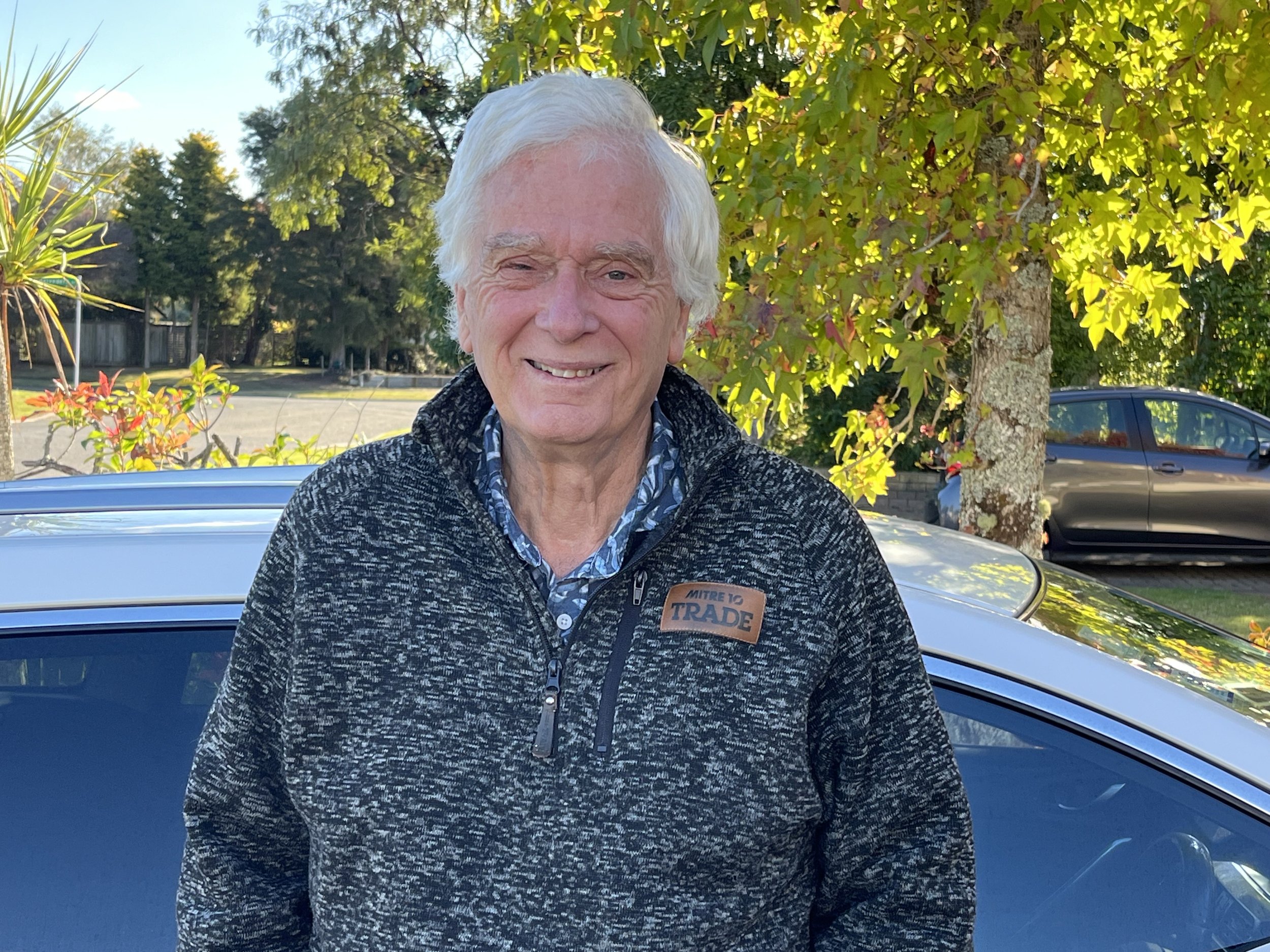Time to step away
Cr John Williamson will not be standing for reelection this year.
Long-serving Taupō District councillor John Williamson is not seeking re-election in this year’s local elections. Chris Marshall talks to him about being a councillor, council achievements and challenges ahead.
John Williamson was elected to the Taupō District Council in 2013, a good decade after his mother Joan had finished her five consecutive terms as mayor in 2001.
That year the council went to a single rating district, using capital value rather than land value to assess rates – a contentious move.
“It took a very brave council to do that because at that stage, the council was borrowing money to pay the interest on our debt.
“It had to do something and because I got on that year I was blindsided, as you would be, trying to assimilate a lot of information and get your head around it.”
“It didn't take much to work out that 80 or 90% of Tūrangi and Mangakino were better off under capital value and 70% of the Taupō district.”
The change spurred a ‘say no’ campaign, but Williamson, having been around the periphery of the council since the late 1970s when his mother was a councillor knew some decisions would invite pushback – even if crucial to develop infrastructure and make progress.
He lists other ‘contentious’ moves in the council’s history – including the selling of Taupō Electricity Limited. The purchase of 253 hectares for the East Taupō Arterial highway and future urban development “proved to be really progressive.”
He can trace his motivation for getting into local politics to his mother who got involved in the community. She taught him, and a lot of people along the way, he said, about the responsibility for leaving the district a better place for future generations.
“That legacy of the ‘80s and ‘90s got the town to where it is today… And to exercise change you have to be in the tent.”
Despite still “feeling relevant”, it's the right time to move on.
“I think the district is in a strong position, notwithstanding challenges around ‘’Local Water Done Well’ and local government reforms.”
He will have more time for family, friends and grandkids but will still be engaged with music, Rotary, the Taupō Hospital and Health Society and Life Education Trust.
“I’ll be travelling a bit… but I can be more discretionary about what I do.”
Achievements could be viewed as subjective but if had “always been about team”.
“To me, some amazing accomplishments happen and there’s not necessarily always credit taken for them. Just getting on with it and the relationship with your peers and management is a big thing, being supportive of each other.
“Having a difference of opinion that’s fine, critical thinking is fine, but if you want some advice for aspiring or elected members going on the council – ‘if you go on there with a single agenda it’s a lonely journey’.
“At this time of the year you’ll find the drums start beating but some of them are quite empty. They want change and that's fine. There's always a chance for people to challenge processes and that's healthy, but generally speaking, you just have to get on with the job and it's a hard job in terms of the mahi.”
He would encourage the younger generation to put their name forward acknowledging that there's a lot of reading as part of the role but most importantly it’s about spending time with the community.
“If you have a job and young family you can be quite challenged, but we do need some fresh thinking.”
He felt privileged to hold the environmental portfolio, he said, having served on the Lake Taupō Protection Project committee for almost a decade.
“That jewel in the crown, the lake, is one of the reasons I put myself forward. To protect the lake was one of my first mantras.”
Involvement with Greening Taupō, Kids Greening Taupō, Predator Free Taupō, the Waipahihi Botanical Society allowed him to see “the amazing work these people do.”
He had also enjoyed the arts portfolio, having a past involvement with the Friends of Museum and a personal interest in music.
A lot of what a council did was not visible, he says.
“You could credit the team like Steve Giles and his team at a national level, bringing the supercars or the half ironman challenge. They are visible, but the things people don't appreciate like infrastructure or the wastewater treatment plant, they are not very sexy.
“It takes major investment and then we are pushed by central government legislation or regulation for water and wastewater, and unfortunately it's a cost.”
He supported continuing Te Papamārearea Māori Ward, he said.
“You’ve got two Māori councillors representing all Māori not just Tūwharetoa … And they are two votes around the table. Democracy still prevails. It's not being compromised. It's just bringing their concerns to the table…They are representing 8,000 on the Māori roll.
“Having worked with them for three years, we see the benefits of that contact with iwi.
“Overall, I've loved every minute of it, and I've found people almost without exception have treated me with respect.. I’d like to thank my past and current colleagues, and of course the wider Taupō community. You’ll still see me around.
“I'm just happy now to move forward, I can start practising the piano again, (pointing to his piano) I've got music up there from 1969.”

